I am looking for a headphone under $600 for my boyfriend that records music (guitar, drums) and vocals. I was originally looking at the beyer DT 1990 but read later that open end headphones are great for recording since it leaks. I do not have a lot of knowledgeable headphones and I stumbled upon this forum while trying to gain some information. Can you please help direct me on which closed end headphone would be the best choice for recording? I am currently considering the beyer DT 1770 Pro, but have been reading some negative reviews and I am stumped. Please help.
-
WANTED: Happy members who like to discuss audio and other topics related to our interest. Desire to learn and share knowledge of science required. There are many reviews of audio hardware and expert members to help answer your questions. Click here to have your audio equipment measured for free!
You are using an out of date browser. It may not display this or other websites correctly.
You should upgrade or use an alternative browser.
You should upgrade or use an alternative browser.
Looking for advice on Beyer DT 1770 or other closed end HP
- Thread starter lbow
- Start date
staticV3
Master Contributor
- Joined
- Aug 29, 2019
- Messages
- 8,007
- Likes
- 12,843
Hi @lbow ! Welcome to ASR.
By far the most important aspect of headphone performance is their frequency response, or how loudly they will play each sound frequency.
A well-tuned headphone with a good frequency response will sound natural, one with a poor frequency response will sound weird.
The 1770 Pro is tuned rather poorly. Here is a graph showing its frequency response:
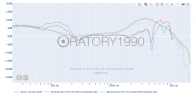
In green is the ideal headphone response, in red is the 1770 with Velours ear pads, in blue with Leather pads (both ear pads are included with the 1770).
As you can see, it doesn't follow the green curve that well.
Here are some closed-back headphones with good tuning:
-Shure SRH440 (Not A!)
-Shure SRH840 (Not A!)
-AKG K371
-Beyerdynamic DT 700 Pro X
-Austrian Audio Hi-X60
-Dan Cark Audio Aeon 2 Noire
Out of these, the Beyer and Austrian seem like a sweet spot to me. The AKG and Shures have stellar frequency response, but build quality is poor.
By far the most important aspect of headphone performance is their frequency response, or how loudly they will play each sound frequency.
A well-tuned headphone with a good frequency response will sound natural, one with a poor frequency response will sound weird.
The 1770 Pro is tuned rather poorly. Here is a graph showing its frequency response:

In green is the ideal headphone response, in red is the 1770 with Velours ear pads, in blue with Leather pads (both ear pads are included with the 1770).
As you can see, it doesn't follow the green curve that well.
Here are some closed-back headphones with good tuning:
-Shure SRH440 (Not A!)
-Shure SRH840 (Not A!)
-AKG K371
-Beyerdynamic DT 700 Pro X
-Austrian Audio Hi-X60
-Dan Cark Audio Aeon 2 Noire
Out of these, the Beyer and Austrian seem like a sweet spot to me. The AKG and Shures have stellar frequency response, but build quality is poor.
Last edited:
- Thread Starter
- #3
Thank you so much for educating me. Interesting that most of these are less expensive but sounds like better sounds headphones. I wanted one with better build and the beyer 700 and austrian are both plastic. Is there one with a bit higher build quality and good sound?
staticV3
Master Contributor
- Joined
- Aug 29, 2019
- Messages
- 8,007
- Likes
- 12,843
Honestly the plastic used by Beyerdynamic is rock-solid, heavy duty stuff. You often see their pastic headphones used and abused in recording studios and the like. I wouldn't worry about it.
Plus in contrast to most other headphone brands, you can get many replacement parts directly from Beyer, should something break.
You could take a look at the Dan Clark Aeon RT Closed and Aeon Closed X as well, though they wouldn't be my first choice.
Plus in contrast to most other headphone brands, you can get many replacement parts directly from Beyer, should something break.
You could take a look at the Dan Clark Aeon RT Closed and Aeon Closed X as well, though they wouldn't be my first choice.
- Thread Starter
- #6
Yes! i've been looking at that one too! Thank youDon't forget the Shure SRH1540.
Is there a reason Why you dont recommend DC Aeon that highly and What Would be your first choice?Honestly the plastic used by Beyerdynamic is rock-solid, heavy duty stuff. You often see their pastic headphones used and abused in recording studios and the like. I wouldn't worry about it.
Plus in contrast to most other headphone brands, you can get many replacement parts directly from Beyer, should something break.
You could take a look at the Dan Clark Aeon RT Closed and Aeon Closed X as well, though they wouldn't be my first choice.
I ask Because im in the same ballpark as op and I value your opnion.
I've had those and the 1770 wasnt that great, muted sounding even with the A pads on it. I have the DT770 250ohm and it's a great value for the money and more fun factor. The MMX300 is also better tuned, and has a really nice mic on it that's handy if he wants to do vocals too.
Dazerdoreal
Active Member
- Joined
- Oct 5, 2022
- Messages
- 219
- Likes
- 232
You might want to check out the Focal Elegia.Thank you so much for educating me. Interesting that most of these are less expensive but sounds like better sounds headphones. I wanted one with better build and the beyer 700 and austrian are both plastic. Is there one with a bit higher build quality and good sound?
"The Focal Elegia are very well-built headphones that have a solid, high-end design. They're made the same way that the Focal Elear and Focal Celestee are. The whole build is almost all made out of metal, making them very solid. They also have a detachable cable, which is convenient and easily replaceable if broken, which makes them more durable. Overall, they have few moving parts and are built like premium headphones that should last you a while."

Focal Elegia Review
The Focal Elegia are above-average critical listening headphones. They're the closed-back variant of the similarly designed Focal Elear. These premium headphones...
staticV3
Master Contributor
- Joined
- Aug 29, 2019
- Messages
- 8,007
- Likes
- 12,843
@Dazerdoreal whenever someone recommends a headphone online, it's a good idea to first check its frequency response on websites like these:
Link1 Link2 Link3 Link4
Here's the Focal Elegia:
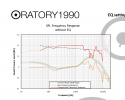
It doesn't extend well into the bass or treble, plus the treble is very rough with peaks and dips all over the place.
Link1 Link2 Link3 Link4
Here's the Focal Elegia:

It doesn't extend well into the bass or treble, plus the treble is very rough with peaks and dips all over the place.
staticV3
Master Contributor
- Joined
- Aug 29, 2019
- Messages
- 8,007
- Likes
- 12,843
The Aeon RT Closed is missing proper ear gain, so you'd have to add that via EQ:Is there a reason Why you dont recommend DC Aeon that highly and What Would be your first choice?
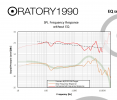
The Aeon Closed X is better in that regard, but showed some some pretty heavy unit variation in Resolve's measurements, so who knows what you'll get when you actually order a pair.
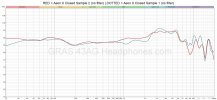
solderdude
Grand Contributor
For recording/studio purposes:
Beyerdynamic DT150 but you must remove the original pads and mount EDT100T pads which can be ordered along with the DT150. This is about as sturdy and neutral as it gets for studio usage.
You could also consider the OLLO S4R (1.2). (Ollo offers a trial period)
DT700X is also an option, also good for hifi. I preferred a (modified) DT1770 over it but the DT700X is better 'as is'.
Also you should consider the Røde NTH-100 (not suited for hifi)
Studio monitoring, mixing and hifi listening are different things.
Beyerdynamic DT150 but you must remove the original pads and mount EDT100T pads which can be ordered along with the DT150. This is about as sturdy and neutral as it gets for studio usage.
You could also consider the OLLO S4R (1.2). (Ollo offers a trial period)
DT700X is also an option, also good for hifi. I preferred a (modified) DT1770 over it but the DT700X is better 'as is'.
Also you should consider the Røde NTH-100 (not suited for hifi)
Studio monitoring, mixing and hifi listening are different things.
Elitzur–Vaidman
Addicted to Fun and Learning
- Joined
- Jul 13, 2022
- Messages
- 508
- Likes
- 537
Focal headbands can snap and there's no easy replacement option.You might want to check out the Focal Elegia.
"The Focal Elegia are very well-built headphones that have a solid, high-end design. They're made the same way that the Focal Elear and Focal Celestee are. The whole build is almost all made out of metal, making them very solid. They also have a detachable cable, which is convenient and easily replaceable if broken, which makes them more durable. Overall, they have few moving parts and are built like premium headphones that should last you a while."

Focal Elegia Review
The Focal Elegia are above-average critical listening headphones. They're the closed-back variant of the similarly designed Focal Elear. These premium headphones...www.rtings.com
DT250
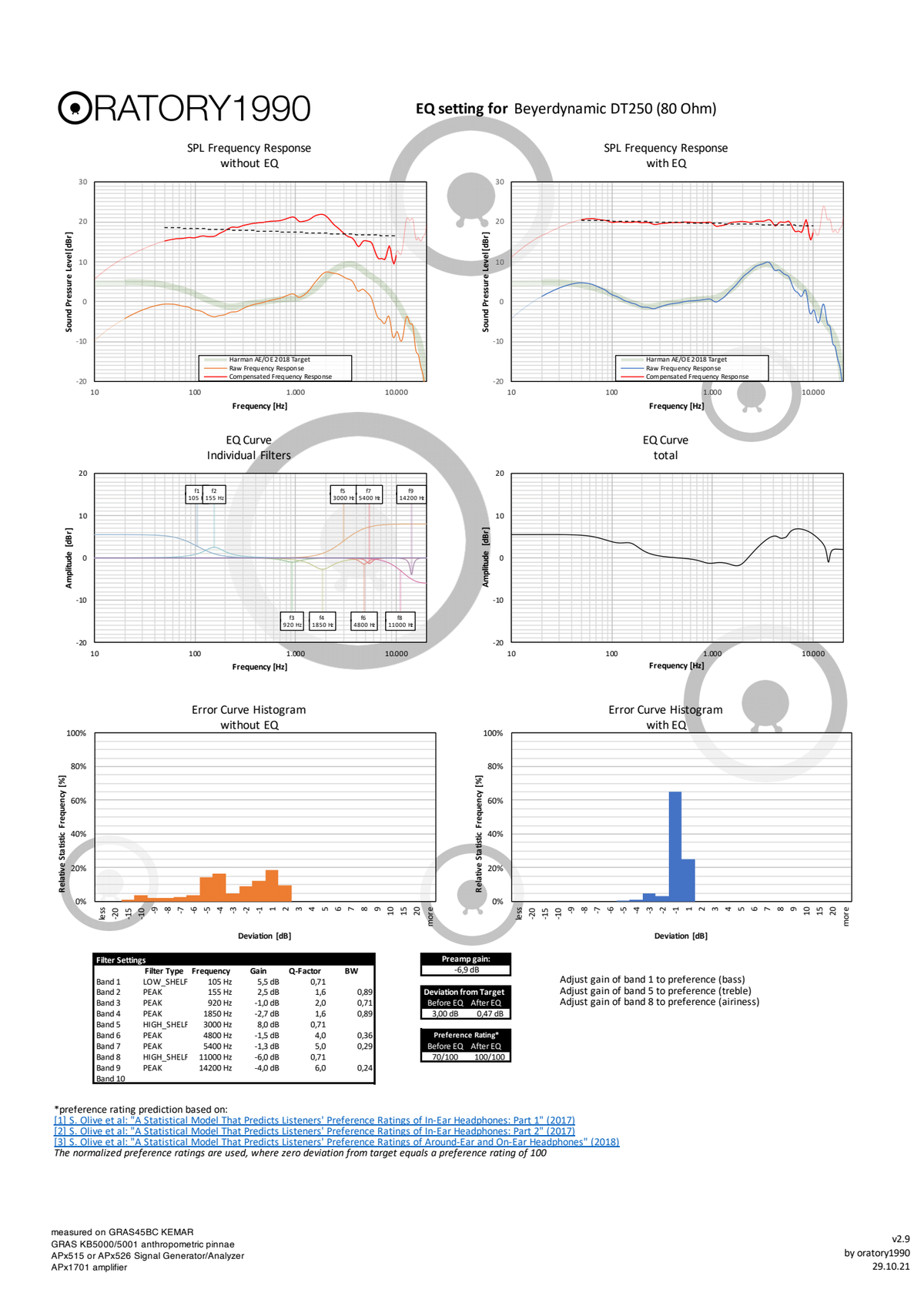
Leiker535
Active Member
- Joined
- Jul 7, 2020
- Messages
- 272
- Likes
- 339
This.For recording/studio purposes:
Beyerdynamic DT150 but you must remove the original pads and mount EDT100T pads which can be ordered along with the DT150. This is about as sturdy and neutral as it gets for studio usage.
You could also consider the OLLO S4R (1.2). (Ollo offers a trial period)
DT700X is also an option, also good for hifi. I preferred a (modified) DT1770 over it but the DT700X is better 'as is'.
Also you should consider the Røde NTH-100 (not suited for hifi)
Studio monitoring, mixing and hifi listening are different things.
For monitoring, the usual criteria of audiophile headphones doesn't bode well. The 1990 are very good mixing headphones thanks to their uncanny bright signature (which also makes them very fatiguing), but they are open back and do not isolate very well.
Thus, you have to have the usecase scenario in mind when considering the gift. The DT1770 you mentioned are nice, but they don't offer that much more than the lower cost DT700X or even the already industry standard Beyerdinamic DT770 32/80ohm. Personally speaking, I quite like the 770 as it is good for mixing, recording and yet can sound good for listening if you don't mind a more agressive tonal signature. The Shures @staticV3 mentioned are also superb in this aspect, though their comfort leaves A LOT to be desired (they get hot, their clamp force is considerable and the pad stuffing is almost non existant). The Beyers are supreme in this aspect.
staticV3
Master Contributor
- Joined
- Aug 29, 2019
- Messages
- 8,007
- Likes
- 12,843
I've never understood that part tbh. From Wikipedia:The 1990 are very good mixing headphones thanks to their uncanny bright signature
Audio mixing is the process of optimizing and combining multitrack recordings into a final mono, stereo or surround sound product. In the process of combining the separate tracks, their relative levels are adjusted and balanced and various processes such as equalization and compression are commonly applied to individual tracks
How can you accurately do that on a headphone like the DT1990, which will distort relative volume levels due to its piercing treble and poor bass response?
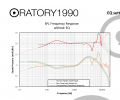
Like, won't a track mixed on the DT1990 sound awful when played back on studio monitors? With dull hi-hats and disgustingly boomy bass, because while mixing you were unintentionally but inadvertently compensating for the headphone's own shortcomings?
Dazerdoreal
Active Member
- Joined
- Oct 5, 2022
- Messages
- 219
- Likes
- 232
I know these websites and I know about the importance of frequency response. But my impression was that the OP prioritises build quality very highly, especially in terms of "metal instead of plastic".@Dazerdoreal whenever someone recommends a headphone online, it's a good idea to first check its frequency response on websites like these:
staticV3
Master Contributor
- Joined
- Aug 29, 2019
- Messages
- 8,007
- Likes
- 12,843
Ok so I've asked some more knowledgeable folks about this and here's where I'm standing now:
Yes! While monitoring/mixing, engineers will frequently boost and tune out certain frequency ranges to better focus on specific parts of a mix.
The foot pedal to quickly disable the sub falls into that category as well.
But buying a headphone that has such a frequency focus baked in is the most idiotic thing I've heard in a while.
While mixing with such a headphone, you're constantly left wondering if the mix itself is sibilant and needs EQing, or if it's the DT1990's middle finger of treble that makes the mix sibilant.
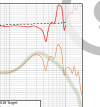
It's much better to start from a neutral reference and do the boosting in your DAW.
That being said, mixing and monitoring benefits from different headphone attributes than home listening and so sacrificing frequency response for e.g. better noise isolation can be worth it. But poor FR is not in itself an advantage.
Yes! While monitoring/mixing, engineers will frequently boost and tune out certain frequency ranges to better focus on specific parts of a mix.
The foot pedal to quickly disable the sub falls into that category as well.
But buying a headphone that has such a frequency focus baked in is the most idiotic thing I've heard in a while.
While mixing with such a headphone, you're constantly left wondering if the mix itself is sibilant and needs EQing, or if it's the DT1990's middle finger of treble that makes the mix sibilant.

It's much better to start from a neutral reference and do the boosting in your DAW.
That being said, mixing and monitoring benefits from different headphone attributes than home listening and so sacrificing frequency response for e.g. better noise isolation can be worth it. But poor FR is not in itself an advantage.
solderdude
Grand Contributor
How can you accurately do that on a headphone like the DT1990, which will distort relative volume levels due to its piercing treble and poor bass response?
EQ or a passive filter.
With A pads the bass response is good, just not Harman but when mixing on it they EQ a little more low bass in the mix (as one would using the HD600)
The B pads are ... well ... they should be called M pads where the M stands for 'Muddy'.
Similar threads
- Replies
- 3
- Views
- 1K
- Replies
- 2
- Views
- 1K
- Replies
- 10
- Views
- 4K
